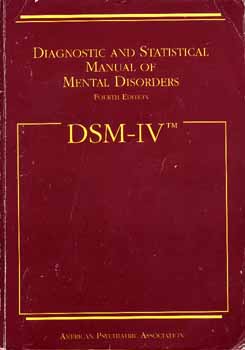
Some time ago a crazy dream came to me
I dreamt I was walkin' into World War Three
I went to the doctor the very next day
To see what kinda words he could say
He said it was a bad dream
I wouldn't worry 'bout it none, though
They're dreams and they're only in your head.
Bob Dylan, "Talkin' World War III Blues"
I did a double-take when I saw this NPR headline a few minutes ago: "Manufacturing shrinks at fastest rate since 1980." My instant and automatic thought was, "Who is? Are we manufactured?" and then, upon further reflection, "Who uses 'shrink' as a verb?"
Psychiatrists are famously (among ourselves anyway) divided into "lumpers" and "splitters" when it comes to diagnosis. Lumpers assort symptoms into a relatively few (often very broad) categories, while splitters delight in, among other things, getting the DSM code just right. But I would argue that good psychiatrists manage to be both very coarse lumpers and extremely discerning splitters at the same time. In my opinion psychiatry does not (yet) benefit from the intermediate kind of splitting that other areas of medicine depend on, and that psychiatry pretends to have by means of the DSM. I will try to explain what I mean.
I am, I suppose, an ultimate splitter inasmuch as I try to appreciate the uniqueness of each patient and his or her life story. In that basic respect there are as many "diagnoses" as there are patients, and the clinical relationship, which in psychiatry has always been a crucial part of the treatment process, stems from irreducible idiosyncrasies. Even when formal psychotherapy is not going on, how I might phrase or cast an explanation or recommendation should rely on my supposition of what might be most effective given the very specific life story involved. To be sure, all physicians should do this, and many do, but psychiatrists are supposed to be especially good at it.
But when it comes to what we might call the medical aspect of psychiatry, and particularly the use of medication, I, like many clinicians I think, end up being a pragmatic lumper. The reason is that our medication treatments are not (yet) specific enough to make highly fine-tuned medical diagnosis useful. Consider "antidepressants," which actually are modestly helpful for a wide range of depressive symptoms, but also for all the anxiety disorders and even eating disorders in some cases. Or consider "antipsychotics," which are used for bipolar disorder and sometimes for refractory anxiety syndromes or even for sleep.
Psychopharmacology remains a highly pragmatic business of weighing symptoms against prospective side effects. Of course, diagnosis comes in handy as a way to bundle symptoms together in a useful way, but arguably the average clinical psychiatrist keeps only a very few of these bundles in mind at any one time. Diagnosis can be helpful for determining prognosis, but much less so for treatment. In terms of decisions I make in the office, it makes little difference whether I call something panic disorder, generalized anxiety disorder, social phobia, or anxiety disorder not otherwise specified. The specific symptoms, in conjunction with the unique person behind them, will determine the treatment more than the diagnosis.
For DSM-style diagnosis to matter more significantly, our treatments would have to be much more specifically pegged to diagnosis, and they aren't. If a medication emerged that was helpful for, say, bulimia, but not at all for depression or anxiety, well, that would be major news. The same general principle is true for psychotherapies as well. Cognitive-behavioral psychotherapy is no more specific than an antidepressant; it ends up being guided more by a specific patient's symptom profile and by his priorities and idiosyncrasies than by the diagnostic code.
Most other medical disciplines are quite different. A person who goes to an internist with chest discomfort could have any one of a significant number of possible diagnoses, and pinning down the right one makes a huge difference not only for prognosis but for treatment. If it is in fact a heart attack, the internist had surely better not treat it as gastroesophageal reflux, costochondritis, pleurisy, or a gall bladder episode. This kind of intermediate diagnostic splitting is crucial to most medical disciplines, and it is one reason why we are making major inroads into the treatment of heart disease, cancer, etc. We are not there yet in psychiatry--neither our diagnostic "system" nor our treatment options are specific enough for intermediate splitting.
But we also do not just listen to someone for fifty minutes and reach for a medication at random. In the next post I'll consider the relatively few, but very weighty, "diagnostic" considerations that any psychiatrist should bear in mind with any patient.
1 comment:
The media perpetuates the idea that psychiatry is about indiscriminately handing out medication without due reflection.
It's offensive but unfortunately when you're dealing with something as nebulous and unseen as mental illness, the media is the first to dumb it down because they think the public won't understand. It's too hard for society to grasp the mechanics of something that they can't see so they automatically dismiss it as something of lesser importance, and by extension, amenable to more simplified/thoughtless treatment -- drugs.
Genetic profiling will make drug therapy more accurate and effective.
Post a Comment